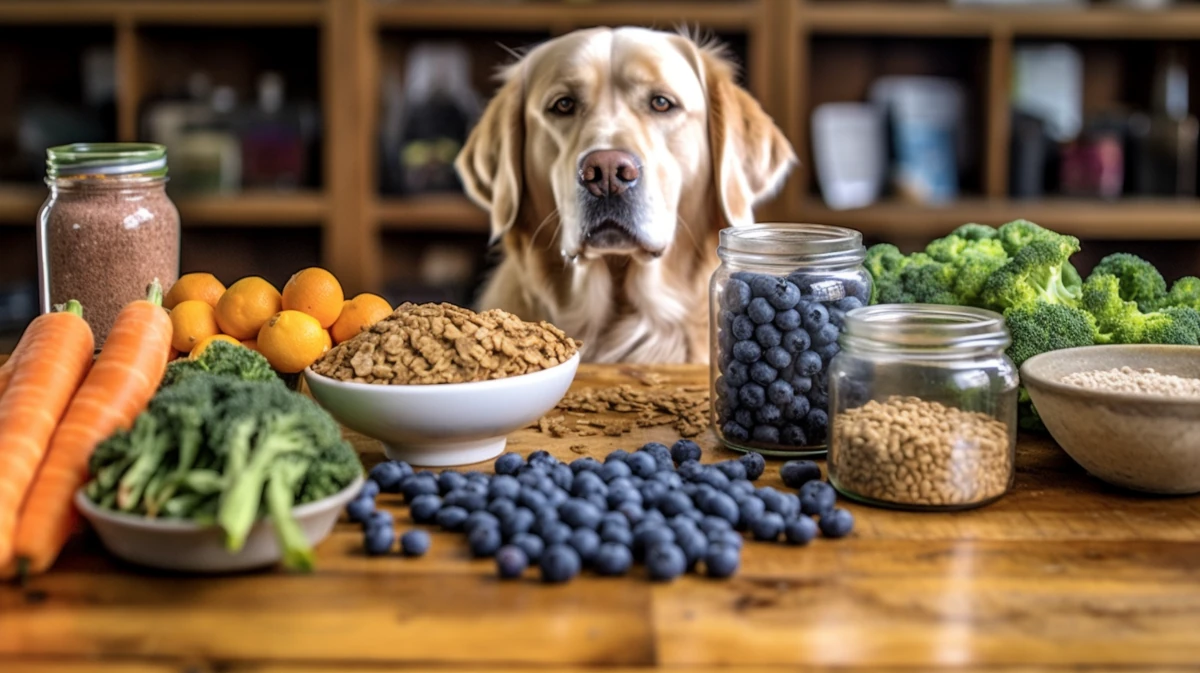In the realm of human nutrition, the term ‘superfood’ has become a buzzword, representing foods that are nutrient-dense and beneficial for overall health. But did you know that our canine companions can also benefit from superfoods? Just as we aim to nourish our bodies with the best, our dogs deserve the same level of care. In this article, we’ll delve into the world of superfoods for dogs, exploring the benefits and how to incorporate them into your pet’s diet.
1. Blueberries: The Antioxidant Powerhouse
Benefits: Blueberries are packed with antioxidants, which help combat free radicals in the body. These free radicals can cause cellular damage and contribute to aging and diseases. By providing your dog with a regular dose of blueberries, you’re helping boost their immune system and overall health.
How to Serve: Fresh or frozen, blueberries can be given as a treat. Ensure they are pesticide-free and always introduce any new food in moderation.
2. Sweet Potatoes: The Digestive Aid
Benefits: Rich in dietary fiber, sweet potatoes are excellent for your dog’s digestive health. They’re also a great source of vitamins A, C, and B6, as well as minerals like manganese.
How to Serve: Boil or steam sweet potatoes and mash them. You can mix the mashed sweet potato with your dog’s regular food.
3. Salmon: The Omega-3 Star
Benefits: Salmon is a fantastic source of omega-3 fatty acids, which are essential for brain health, reducing inflammation, and keeping your dog’s coat shiny and healthy.
How to Serve: Offer cooked salmon (avoid raw due to potential parasites) in small portions. Ensure there are no bones.
4. Spinach: The Green Machine
Benefits: Spinach is rich in iron and vitamin K. It helps in boosting metabolism and ensures healthy bone development.
How to Serve: Chop spinach finely and mix it with your dog’s meal. Remember to introduce it slowly and in small quantities.
5. Pumpkin: The Gut-Health Guardian
Benefits: Pumpkin is a known remedy for digestive issues in dogs. It’s rich in fiber, which aids in digestion and can help with both diarrhea and constipation.
How to Serve: Offer plain, cooked pumpkin or unsweetened canned pumpkin. A tablespoon or two, depending on your dog’s size, can be mixed into their food.
6. Chia Seeds: The Tiny Titans
Benefits: Chia seeds are rich in omega-3 fatty acids, fiber, and protein. They’re great for skin, coat, and brain health.
How to Serve: Sprinkle a small amount of chia seeds over your dog’s food. They can also be soaked in water to form a gel-like consistency, which can be mixed with their meal.
7. Carrots: The Dental Defender
Benefits: Crunchy carrots act as a natural toothbrush, helping to remove plaque from your dog’s teeth. They’re also a good source of vitamins and minerals.
How to Serve: Offer raw carrots as a chewy treat. For smaller dogs, ensure the pieces are appropriately sized to prevent choking.
8. Broccoli: The Cancer Fighter
Benefits: Broccoli is rich in antioxidants and has been linked to cancer prevention. It’s also a good source of fiber, vitamin K, and vitamin C.
How to Serve: Steam broccoli until it’s soft and mix it with your dog’s food. Ensure it’s given in moderation, as too much can cause digestive upset.
9. Quinoa: The Protein Prodigy
Benefits: Quinoa is a complete protein, meaning it contains all nine essential amino acids. It’s also gluten-free and can be a good alternative for dogs with grain sensitivities.
How to Serve: Cook quinoa thoroughly and mix it with your dog’s regular food.
10. Coconut Oil: The Immunity Igniter
Benefits: Coconut oil contains medium-chain triglycerides (MCTs), which are beneficial for brain health, improving skin and coat, and boosting the immune system.
How to Serve: Start with a small amount (1/4 teaspoon for small dogs, up to 1 teaspoon for larger dogs) and mix it into their food.
Conclusion
While these superfoods offer numerous health benefits, it’s essential to remember that they should complement, not replace, a balanced diet. Always introduce new foods slowly and in moderation to monitor for any allergic reactions or sensitivities. And, as always, consult with your veterinarian before making significant changes to your dog’s diet.
With the right nutrition, our dogs can lead healthier, happier lives. After all, they’re not just pets; they’re family. So, here’s to superfoods for our super dogs! 🐾
